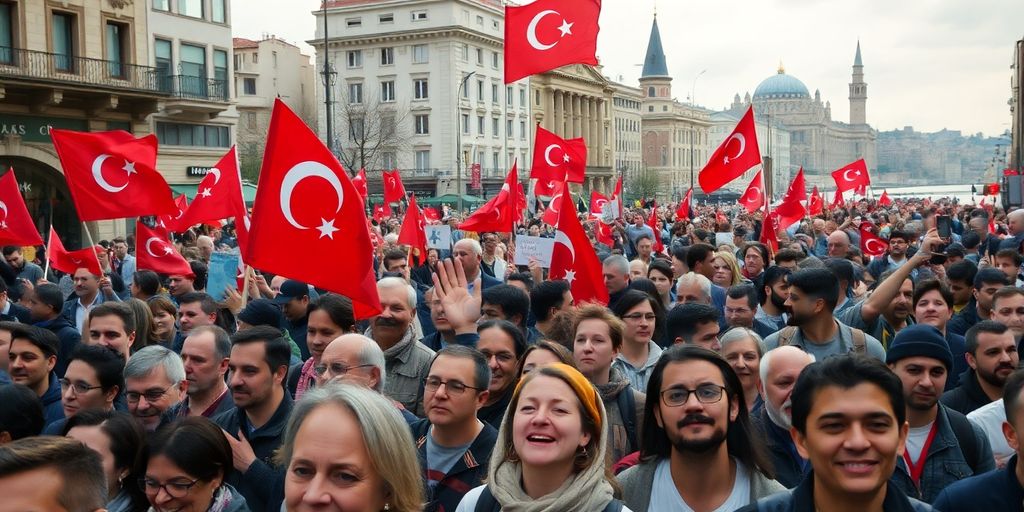Hundreds of thousands of protesters took to the streets of Istanbul on March 29, 2025, marking the tenth consecutive day of demonstrations against President Recep Tayyip Erdogan’s government. The unrest was sparked by the jailing of Ekrem Imamoglu, the popular mayor of Istanbul and Erdogan’s main political rival, who was arrested on charges widely viewed as politically motivated.
Key Takeaways
- Over 2 million people participated in protests across Turkey, demanding Imamoglu’s release and an early election.
- The protests are the largest seen in Turkey in over a decade, reflecting widespread discontent with Erdogan’s rule.
- Nearly 2,000 people have been detained since the protests began, with many calling for justice and democracy.
Background Of The Protests
The protests erupted following the arrest of Ekrem Imamoglu on March 19, 2025, on allegations of financial misconduct and links to insurgent groups. His supporters argue that these charges are a tactic by Erdogan to eliminate a significant electoral threat ahead of the 2028 presidential elections.
Imamoglu’s arrest has galvanized opposition groups, particularly the Republican People’s Party (CHP), which organized the mass rallies. The CHP has positioned Imamoglu as their candidate for the upcoming presidential election, and his imprisonment has become a rallying point for those dissatisfied with Erdogan’s increasingly authoritarian governance.
The Scale Of The Protests
Protesters gathered in various locations, with the largest rally taking place in Maltepe, Istanbul. Demonstrators waved Turkish flags and held banners bearing Imamoglu’s image, chanting slogans demanding justice and freedom. Many participants expressed their frustration not only with the political situation but also with the dire economic conditions affecting everyday life in Turkey, including high inflation and rising living costs.
The protests have drawn a diverse crowd, including students, workers, and retirees, all united in their call for change. As one protester stated, "We are fighting not just for Ekrem, but for Turkey."
Government Response
In response to the protests, the Turkish government has implemented a heavy-handed crackdown. Reports indicate that nearly 2,000 individuals have been detained, including journalists and activists. The government has dismissed the protests as the actions of "marginal groups" and has threatened legal consequences for those involved.
Despite the government’s attempts to suppress dissent, the protests have remained largely peaceful, with demonstrators emphasizing their commitment to non-violence. However, tensions have escalated in some areas, leading to confrontations with police who have used tear gas and rubber bullets to disperse crowds.
The Future Of Turkish Democracy
The ongoing protests represent a critical moment for Turkish democracy. Many observers note that the scale of the demonstrations indicates a significant shift in public sentiment against Erdogan’s long-standing rule. As Nobel Prize-winning author Orhan Pamuk remarked, "What remains of Turkish democracy is fighting for its survival today."
The outcome of this struggle remains uncertain, but the determination of the Turkish people to demand their rights and freedoms is clear. As the protests continue, the international community watches closely, aware that the future of democracy in Turkey hangs in the balance.
Sources
- Hundreds of thousands flood Istanbul streets as Turkey marks 10th day of protests: ‘The nation is united against the oppressor’, New York Post.
- Hundreds of thousands rally in Turkey over jailing of Erdogan rival, USA Today.
- Turkey Protests, A Striking Counter-Narrative To The World’s Authoritarian Shift, Worldcrunch.
- Turkey’s mass protests target Erdogan’s grip on power – DW – 03/30/2025, DW.
- Hundreds of thousands demonstrate in Istanbul to defend democracy, Le Monde.fr.






